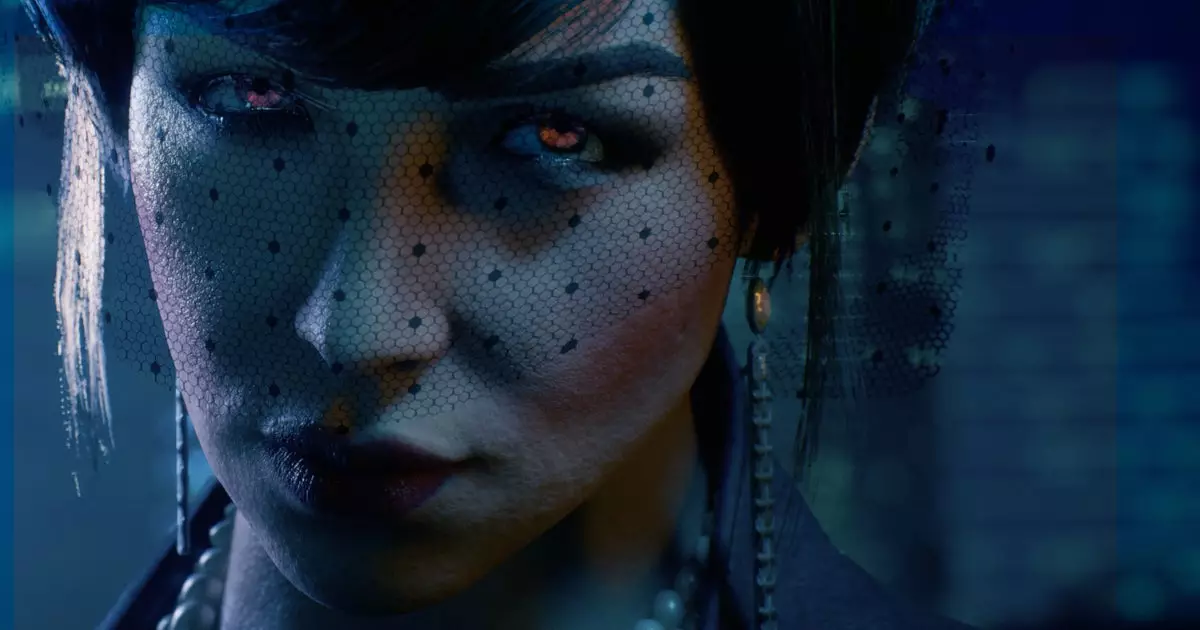The gaming community is abuzz with anticipation and skepticism surrounding the long-awaited release of “Vampire: The Masquerade – Bloodlines 2”. As the game undergoes development under The Chinese Room’s stewardship, Paradox Interactive has made it clear that this sequel will not be the sprawling simulation that its predecessor was. Instead, it will embrace a more linear and action-oriented storytelling approach. The notion of nostalgia versus reality looms large over this title, as memories of the mythical 2004 original continue to clash with modern expectations.
According to Paradox Interactive, the new iteration of Bloodlines will reflect a significant shift in its design philosophy. The original game, known for its intricate web of choices and consequences within an open-ended framework, is seen as a mythologized relic. As articulated by Mattias Lilja, Paradox’s deputy chief executive officer, many of the original’s features are viewed as outdated and potentially problematic in today’s gaming landscape. He expresses concern that players’ memories of the first Bloodlines game have been idealized, overshadowing its limitations and age.
This transition to a more linear format plays to The Chinese Room’s strengths, as they have a track record of crafting narrative experiences within atmospheric settings. The studio’s previous titles, such as “Everybody’s Gone to the Rapture,” showcase their ability to weave emotion into structured gameplay. However, this approach raises questions about the game’s replayability and depth in character interaction, hallmarks that defined the beloved original.
In recent years, Paradox has faced an array of corporate challenges that have contributed to declining profits. Issues like prolonged delays, cancelled projects, and struggling partnerships have significantly impacted their financial output, leading to a 90% drop in operating profits for the second quarter of 2024. The development journey of Bloodlines 2 has particularly resonated with this trend, marked by a troubled history including a change of studios, the firing of key personnel, and multiple delays.
Initially announced in 2019 with Hardsuit Labs at the helm, the game was positioned as a direct successor, promising to deliver on the high expectations set by the original. However, hiccups in development prompted a shift to The Chinese Room in 2021. Lilja indicates that this transition came not from a lack of vision, but from Hardsuit Labs’ difficulties in delivering the desired product. This upheaval leaves a lingering question: can a game that has endured so many changes maintain the essence of what fans adored about the original?
Commissioned to avoid excessive faithfulness to the original’s design, The Chinese Room is expected to provide a fresh yet familiar experience that draws on the franchise’s legacy while forging its path. Lilja emphasizes the need to recalibrate players’ expectations, signaling that the game should not be seen as an homage to 2004 but as a spiritual successor. This distinction is essential, as it aims to create a clear understanding of what players can anticipate from the finalized product.
Lilja’s statements reflect a broader trend in gaming, where older titles often lose their original context and become surrounded by a veil of nostalgia. While Bloodlines’ themes and its unique portrayal of gothic vampire lore left a lasting impression on players, the prevailing sentiment is that a faithful recreation would not be feasible or desirable. This awareness demonstrates a desire to innovate rather than mimic, which could ultimately engage a new audience while appealing to long-term fans.
As Bloodlines 2 approaches its expected release in the first half of next year, cautious optimism seems to characterize Paradox’s outlook. While the company hopes to recoup its investments, Lilja acknowledges that the prolonged development has changed the game’s trajectory significantly. The emphasis on storytelling and action-oriented gameplay could attract a broader player base, but it remains to be seen whether this move satisfies the dedicated fans who cherished the intricate nature of the original.
For Paradox, the learning curve emerging from this project could influence how future games are approached, particularly those outside their grand strategy niche. There is an understanding of the need to balance risk with creative freedom, especially in a landscape where player expectations are constantly evolving.
Ultimately, while Bloodlines 2 may not live up to the mythical status of its predecessor, The Chinese Room’s reputation for creating compelling narratives suggests that even in its evolution, the game may still deliver an experience worthy of the World of Darkness. A carefully curated atmospheric journey through the vampiric underbelly can still hold significant allure, even if it lacks the sprawling complexity that many nostalgic gamers crave.


Leave a Reply